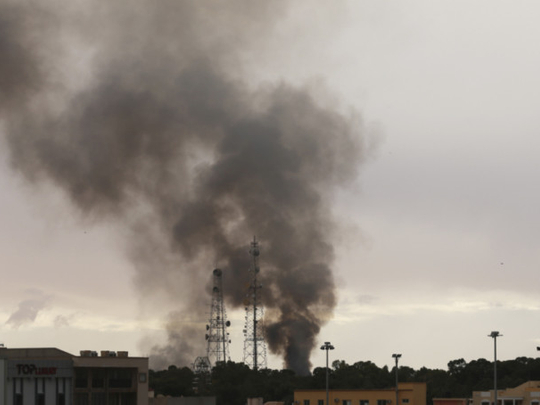
Many will be surprised that theories used in administrative, social, political, environmental and psychological sciences go back in their origin to scientific theories developed long ago in mathematics, physics, chemistry and biology. I would like to mention here as examples the Critical Mass Theory, the Second Law of Thermodynamics (entropy), the Chaos theory and the Singularity Theory.
And in the context of the prevalent situation in the Middle East today — the massive and serious political changes it is undergoing — it seems appropriate to approach the issue from the perspective of the Chaos Theory. This theory is one that is used in the field of environmental science. It was inspired by the mathematical theory of Singularity, which involves the study of the kinetic situation in stable systems in the long term, and is subject to abrupt change due to the small changes in its surrounding environment.
At the level of mathematical relations, the uniqueness theory analyses the change that occurs in the nature of solutions of mathematical equations because of the emergence of new factors in the same equations. At the quantitative level, sudden change is very large and approximates infinity. On the other hand, the time of occurrence is very small and is indistinguishable from zero. This case is known as Singularity and is expressed in equations as mathematical functions. The concept of Singularity is no longer confined to cases wherein we lose the ability to define any variable; black holes, for instance, which are predicted by cosmologists to be present in the centres of galaxies, are consistent with the definition of Singularity.
The Big Bang Theory, which explains the origins of the universe, also assumes that the entire universe was concentrated in a physical point — one with infinite density and dimensions equal to zero, the point of “Singularity”.
The Crisis theory goes back to the 1960s and was postulated by French mathematician Rene Thom. It gained importance in the 1970s through the efforts made by Christopher Zeeman. The theory represents a new way of thinking about the sudden change that occurs as a result of a specific event, whether this change takes place in the body, behaviour or thoughts.
On the practical level, earthquakes, hurricanes, mudslides, epidemics and wars are considered perfect examples of disasters as they occur suddenly and lead to abrupt shifts in normal life.
In the light of this definition of the meaning of disaster, the collapse of political systems is subject to invasion or external or internal revolutions. The fall of political regimes as a result of foreign invasions or internal revolutions is a result of the Crisis Theory because the general characteristic of a crisis is consistent with the properties of the sudden collapse of regimes. The community is a social system governed by a politico-social system that has been stable for a long time. This stability may be subjected to sudden collapse with the advent of a system of unknown features creating new paths for its future.
The most likely path is the one that physically leads to a “lesser energy” state, meaning a steady-state. But this is not necessarily free of losses. In this regard we cannot subject military coups to the crisis theory because these coups do not change the system; just the faces of rulers. The Crisis Theory is suitable for studying and analysing Third World revolutions, especially in the so-called Arab Spring countries. These revolutions resulted from instability, which does not necessarily lead to a uniform path for the future of these countries due to their community structures. Revolution in the world of politics means the collapse of the existing system, with its institutions, regulations, laws and political bodies. The system is considered illegitimate while a new regime is set up with a new set of laws and regulations led by a new political elite.
Revolution also means a change in the economic structure and whatever is built on that in terms of social, intellectual and associated ideological structures as well as all related changes in the systems of values and norms. It is similar to the collapse of a monarchy and the establishment of republican systems, exactly as what happened in the 1950s and 1960s in a number of Arab countries.
The fall of the political system opens more than one path, especially if the community is initially divided where the old and the new are mixed together and where foreign influence is ripe. The expected paths entail the outbreak of an internal war that ends with the dominance of one party over the others or the decline of all parties due to war-weariness. As a result, a political consensus will be reached or, in the worst-case scenario, the country will be divided or subjected to a foreign invasion.
The events witnessed in Iraq, Libya and Syria illustrate my point of view. Despite all the romanticism that accompanies the concept of revolutions in the minds of the youth, reality tells us that revolutions may yield negative aspects in any given community that surpass its positive aspects. Hence revolutions may not be the best solution when it comes to developing strategies and policies.
Mohammad Akef Jamal is an Iraqi writer based in Dubai.









